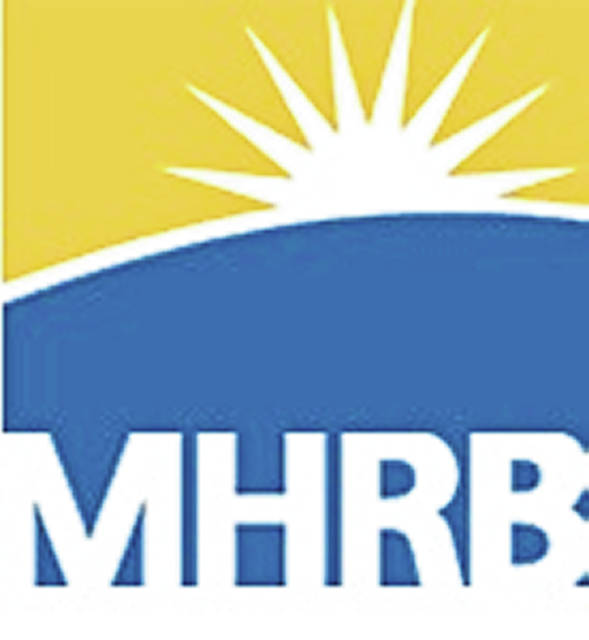
SPRINGFIELD — As part of National Prevention Week 2020, Mental Health Recovery Board of Clark, Greene & Madison Counties (MHRB) continues to raise awareness about the risk of suicide and substance use concerns in its three-county region.
National Prevention Week (NPW) was founded by the Substance Abuse and Mental Health Services Administration (SAMHSA, samhsa.gov) to promote prevention efforts, educate others about behavioral health issues, and create and strengthen community partnerships across individuals, organizations and coalitions. NPW is held annually at the start of summer, a key period of social transition that plays a significant risk factor in youth substance use.
This year, NPW carries a more urgent and serious call to action than ever before, as people face increased risks while being isolated due to COVID-19.
“Life changes, on top of existing stressors like COVID-19 that overwhelm coping mechanisms, can often act as a tipping point when individuals experience brain diseases like depression and substance use disorder, putting one at risk for re-occurrence of symptoms or lead to suicidal thoughts,” said Greta Mayer, CEO of MHRB. “It is even more difficult to be aware of the warning signs in loved ones while practicing effective social distancing. That’s why it is so critical for us to raise awareness and practice creating positive mental health habits during this period in our community.”
Suicide warning signs
As part of MHRB’s efforts to connect people to resources for the prevention, treatment and support of mental health and addiction, Mayer encourages community members to be aware of the following suicide warning signs in their loved ones:
Things people might say:
I’m going to kill myself/end it all.
If [insert actions], I’ll kill myself.
I wish I were dead.
[Insert person or group of people] would be better off without me.
I can’t go on/want to quit.
You won’t have to worry about me much longer.
Who cares if I die?
I’m not needed anymore.
Things people might do:
Planning for death, like making or changing a will and/or life insurance policy, making funeral arrangements, or giving things away out of the blue.
Buying a gun, collecting pills, or seeking other means of self-harm.
Increased use of alcohol and/or drugs.
Showing sudden changes in behavior, like episodes of anger or having conflict with others.
Having prior suicide attempts.
Talking or writing about death, dying, or suicide, when out of the ordinary.
Visiting the doctor without any physical issues.
Other warning signs:
Sudden break up, separation, or divorce.
Unwanted recent changes, like moving or experiencing a loss of freedom.
Loss of loved one (especially if sudden or by suicide) or therapist.
Recently diagnosed with a terminal illness.
Financial troubles.
“It is important to intervene as soon as possible by asking direct questions and listening closely, if you or someone you know is having suicidal thoughts,” Mayer said. “People tend to act more impulsively when their judgment is impaired, which is often the case when they are experiencing emotional pain.”
How to help
Take any signs seriously, especially if the person has a plan or access to weapons.
Ask the person directly whether they are thinking of suicide. Ask if they have a plan. Asking these questions does not increase risk.
Listen carefully and let the person know that you care.
Try to convince the person to get help and connect them to resources, like Crisis Text Line (text 4hope to 741-741 to reach a trained crisis counselor, 24/7) or the National Suicide Prevention Lifeline at 1-800-273-TALK (8255), Veterans press 1.
If the situation is imminent, call 911.
Support for substance use concerns
MHRB strives to create prevention-prepared and recovery-oriented communities, a need that is even greater now during this time when people in recovery from a substance use disorder may be separated from their regular support systems. Here are a few simple ways individuals in recovery and community members can support each other during COVID-19:
Hold on to your goals. Remembering why you’ve chosen recovery can help push back against the normalization of drinking and drugs as coping mechanisms.
Remember that this situation is temporary.
Regain structure while staying at home by creating a simple, daily routine.
Physical isolation is important but doesn’t require staying emotionally or mentally isolated. Making an effort to reach out to individuals in recovery and loved ones to check on them is an easy way to give and receive care.
Stay connected with your care providers. MHRB substance use disorder providers, including McKinley Hall, TCN Behavioral Health Services, and Mental Health Services are still open and transitioning their support services to meet the needs of community members in quarantine. FOA Bridge of Support offers online support groups and will be offering in-person meetings for the first time this week.
Seek virtual support options to supplement your existing support systems or create new ones. SAMHSA has a comprehensive list of virtual recovery programs, hotlines and helpful tips for setting up your own virtual meetings.
Remember to make time for self-care, finding new interests and practicing self-compassion.
“When someone is experiencing substance use problems, you may find yourself at a loss for what to say or how to help. Know that you’re not alone, and reach out in a caring way,” said Mayer. “As care providers and members of a supportive community, we can take small steps to educate ourselves and others by sharing this important information.”
For more information about mental health and substance use resources in Clark, Greene and Madison counties, visit www.mhrb.org.


